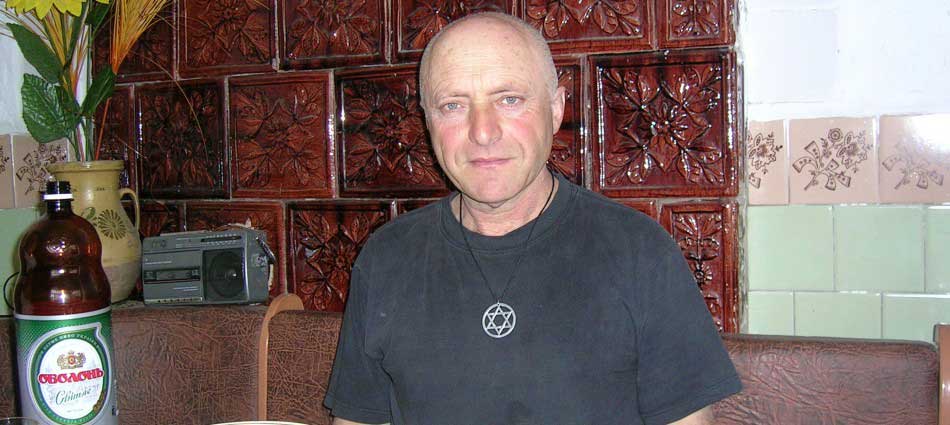
The Jewish Face of Bratslav
As we drove up to the village, our first impulse was to head to the cemetery. I knew from my research that the cemetery was Bratslav’s claim to fame (it’s all relative). As we looked for directions, we saw a young woman standing in front of a store whose sign read: “European Clothes.” She seemed a likely candidate for reliable information. “Fima,” is the person you want, she said, and pointed us toward a house a few yards down the road. We knocked on the door and were invited in.
Ephraim Rabinovitch, known to all as Fima, was one, he explained, of only eight remaining Jews (including his daughter and son-in-law, who had returned from Israel, which is where most of the Jewish families had emigrated). Fima, we learned, was in fact, officially responsible for the care of the town’s cemetery. So we had come to the right place. His house had been renovated, he told us, but the reddish, sculpted tiles probably belonged to the original house, part of an oven. In their book Ghosts of Home, Marianne Hirsch and Leo Spitzer describe the importance of the tile stove in this part of the world, for heat, of course, but also for baking.